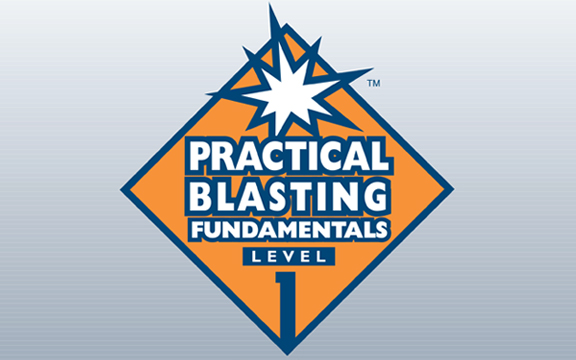Training

Online Practical Blasting Fundamentals Level I covers a wide range of blasting topics perfect for getting a better understanding of blasting and to broaden your knowledge in the many different avenues of the blasting world.
Please allow 3 - 5 business days for your certificate to be processed.
Already purchased your certificate program?
This program is approved in Arkansas, Colorado, Delaware, Hawaii, Iowa, Indiana, Missouri, Montana, Nebraska, New York, Ohio, Oregon, Pennsylvania, South Carolina, Virginia, Vermont, and West Virginia. Please check with your respective regulatory agencies for approved training hours and any specific restrictions associated with the course. (Updated 1/2026)
What’s Included
ISEE Certificate Program: Online Practical Blasting Fundamentals Level I includes 8 online lessons and a corresponding print workbook.
Lessons
- Lesson 1: Blasting Safety - Stresses the importance of field operations safety and focuses on the importance of well-trained personnel, the proper use of blasting materials and equipment and the correct use of blasting procedures and methods.
- Lesson 2: Geological Effects on Blasting - Focuses on rock breakage by explosives and the factors that influence breakage. Also covered are rock properties and the structure and geological classification of rocks.
- Lesson 3: Field Controls and Drilling Accuracy - Emphasizes the use of proper field controls and drilling practices together with basic hole loading procedures and information on setting up and detonating a shot.
- Lesson 4: Explosives Products and Selection - Covers the types of explosives and blasting agents used in blasting. The lesson also covers explosives properties and selection criteria.
- Lesson 5: Detonators and Initiation Systems - Provides information on initiation systems, electric and nonelectric detonators, detonating cord, primers and boosters and proper methods and techniques.
- Lesson 6: Blast Design - Promotes proper design considerations and covers basic blasting theory. Also, covered are delay patterns, timing considerations and design guides.
- Lesson 7: Ground Vibrations and Air Overpressure - Stresses the importance of ground vibration and air overpressure prediction and covers the concepts of propagation, decay, normalization/scaling data, charge per delay and reporting anomalous data. The lesson also stresses effects on structure, human response, regulations and the importance of effective public relations.
- Lesson 8: Explosives Regulation and Compliance - Covers the scope of explosives regulations including origin, intent and descriptions of various agencies and organizations. The lesson also addresses how to function under a climate of explosives regulations and covers support and standard-setting organizations together with an overview of international regulations.




